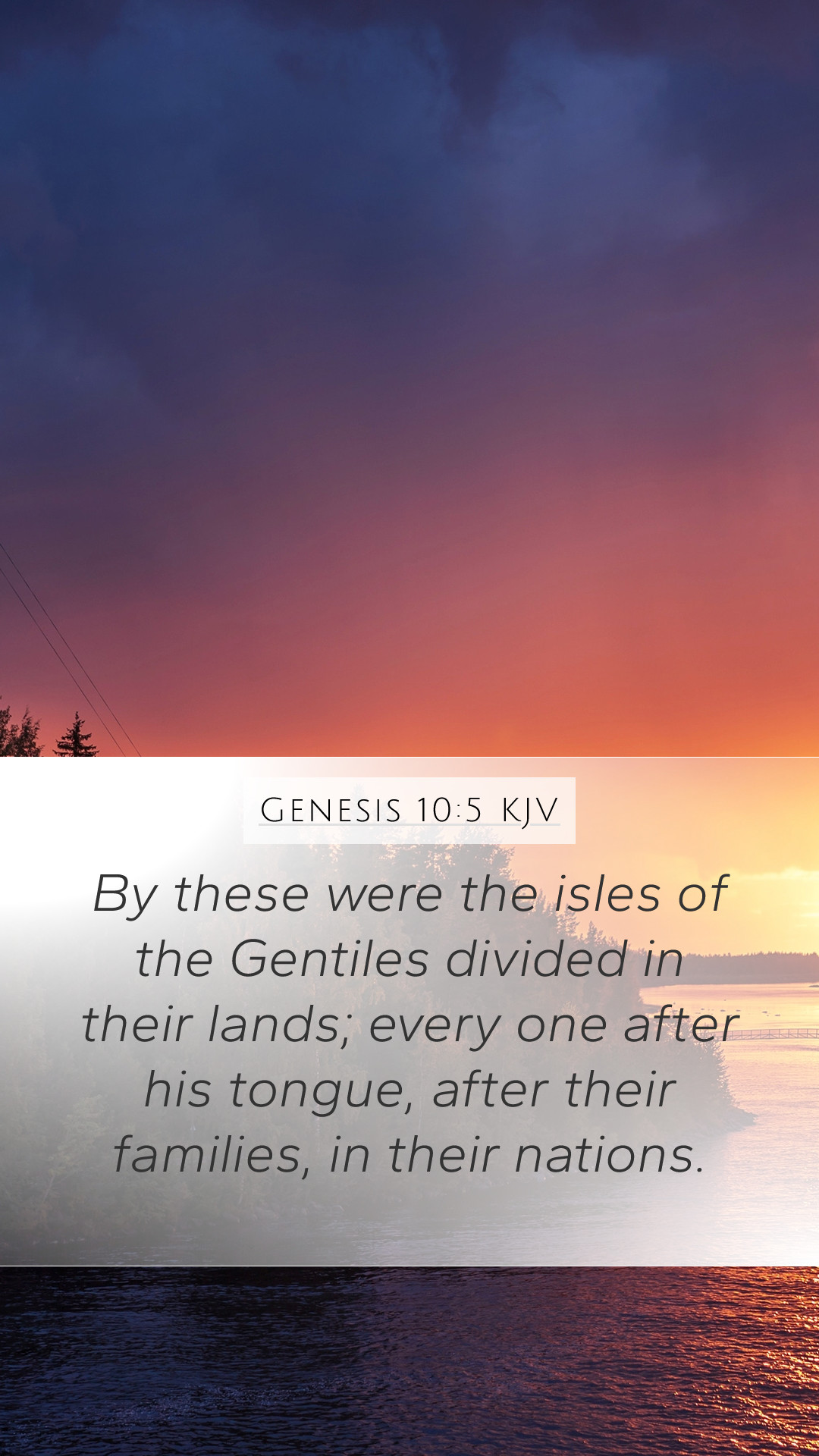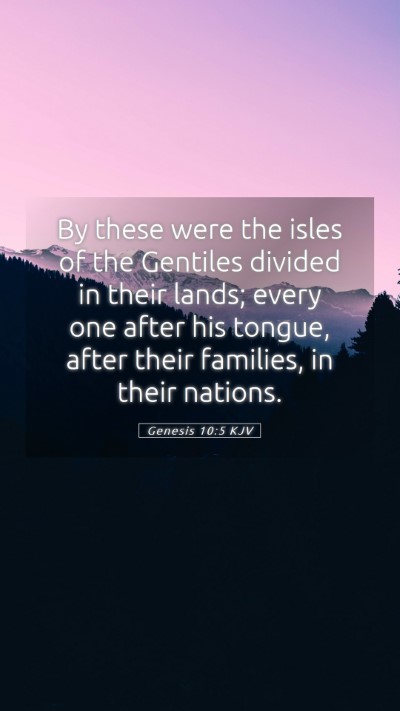Understanding Genesis 10:5
Genesis 10:5 states: "By these were the isles of the Gentiles divided in their lands; every one after his tongue, after their families, in their nations." This verse is part of the genealogical account that outlines the descendants of Noah's sons after the Flood, presenting the spread of nations and languages across the Earth.
Context and Significance
The passage fits into a larger narrative that demonstrates God's sovereignty over the creation of diverse peoples and languages. It follows the account of the Table of Nations, which traces the lineages that emerged from Noah's sons, especially focusing on Japheth's descendants who populated the coastal regions.
Key Themes
- Division of Nations: The verse highlights that the Gentile nations were established and divided according to their languages and families, indicating God's plan in diversifying humanity.
- Historical Context: Understanding this division helps to comprehend the geopolitical realities of the ancient world, showcasing how various nations emerged from common ancestry.
- Cultural Diversity: This verse underscores the importance of cultural identities and the differentiation of nations, which are critical to understanding biblical prophecy and the mission of the Church.
Bible Verse Interpretations
According to Matthew Henry, Genesis 10:5 illustrates the fulfillment of God's command to Noah to “be fruitful and multiply, and fill the earth.” This verse reflects the eventual separation and settlement of populations. Albert Barnes emphasizes that the verse signifies not just a physical distinction but also the origins of distinct cultural and linguistic groups.
Insights from Commentaries
Matthew Henry: He views the division as a sign of God’s providence, orchestrating history through the dispersal of people across the earth to fulfill His divine plan.
Albert Barnes: Barnes notes the significance of the "isles of the Gentiles," pointing out that this is a reference to coastal nations, emphasizing the spread of Japheth’s descendants to areas like Greece and Asia Minor.
Adam Clarke: Clarke explains that the term "isles" can be interpreted broadly, not limited to islands but also to distant lands or nations, illustrating the vast reach and expansion of humanity after the flood.
Applications for Today
Genesis 10:5 provides valuable lessons for modern readers:
- Cultural Appreciation: Acknowledging the diversity within human cultures encourages interpersonal respect and understanding.
- Divine Design: Recognizing that God is sovereign over human history can provide comfort in times of uncertainty.
- Evangelism Perspective: This verse serves as a reminder of the mission to reach all nations, languages, and cultures with the gospel, reflecting the mandate given in the Great Commission.
Cross References
- Genesis 9:19 - The Sons of Noah
- Acts 17:26 - God's Sovereignty in Nation Building
- Revelation 7:9 - A Picture of Multicultural Worship
Conclusion
In summary, Genesis 10:5 provides profound insights into the early human societal structure post-Flood. Through various commentaries, we see a deeper understanding of how God orchestrates the genealogy and division of nations. This verse invites reflection on cultural diversity and our shared humanity while underscoring the importance of its implications for Bible study, interpretation, and application in daily life.
Further Study Resources
For those wishing to delve deeper into related topics, consider exploring:
- Bible study guides on Old Testament genealogies
- Online Bible study platforms offering historical context of Scripture
- Discussion groups focusing on the cultural implications of biblical texts


